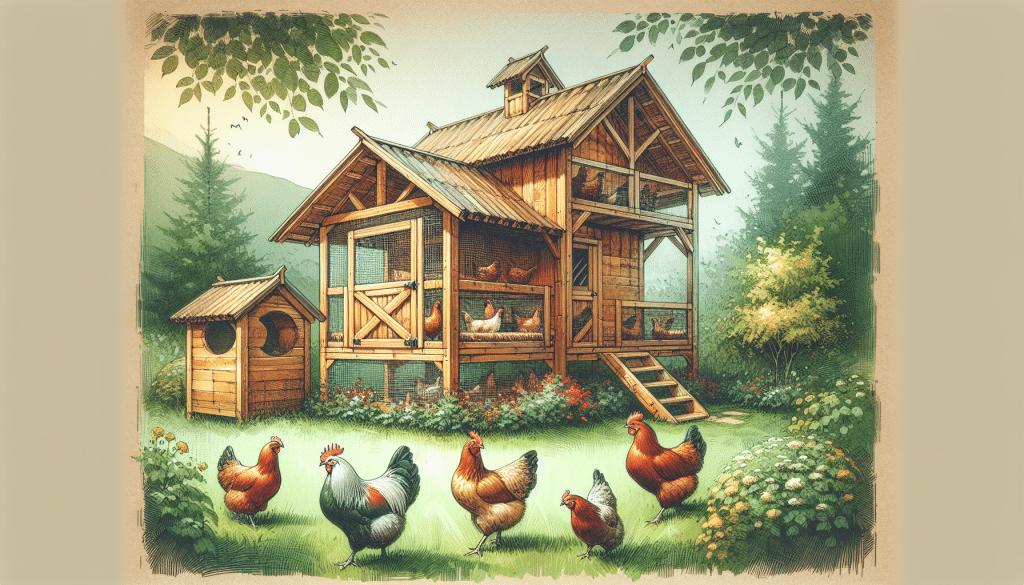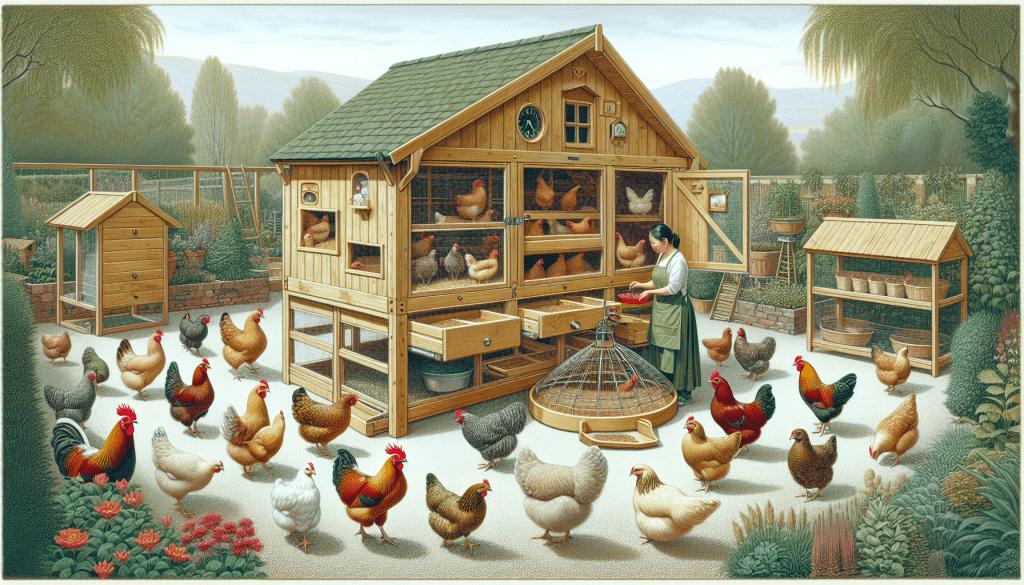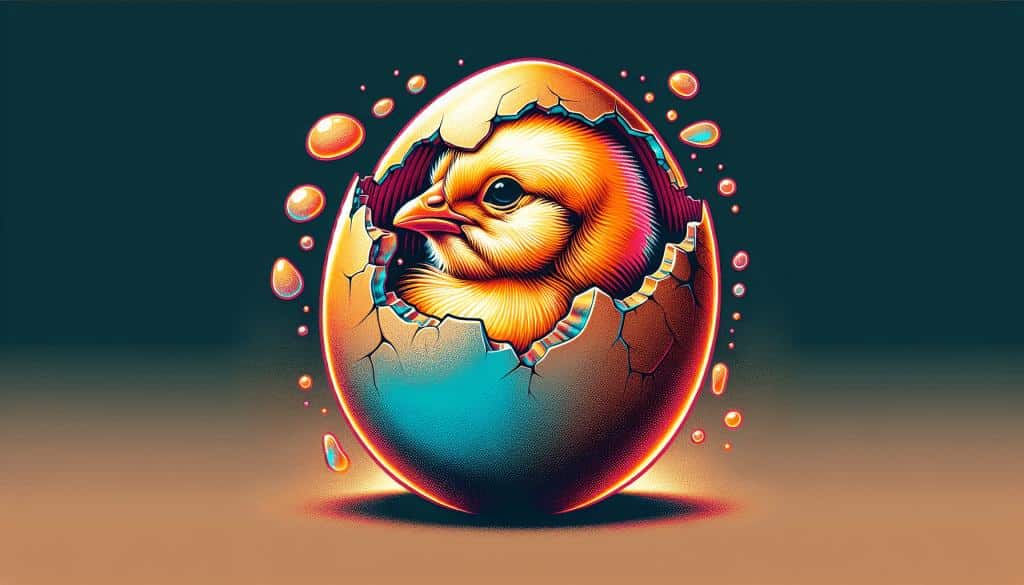So you’ve decided to join the ranks of backyard chicken enthusiasts and now find yourself knee-deep in feathers and clucks. But what happens when your feathered friends start experiencing some not-so-pleasant health issues? From sneezes to funky feathers, this hilarious guide will take you on a wild ride through the common issues that can afflict chickens and provide you with some egg-cellent solutions to keep them clucking happily ever after. Get ready to navigate the wacky world of chicken health with a dose of laughter and a sprinkling of feathers.
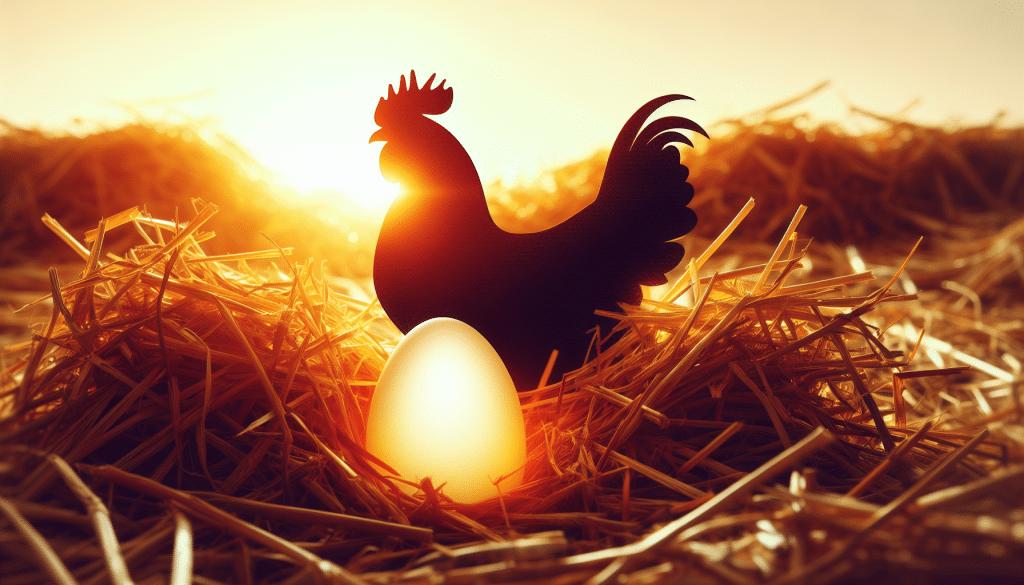
Understanding Chicken Physiology
The Basics of Chicken Anatomy
When it comes to understanding chicken physiology, it’s important to start with the basics of their anatomy. Chickens have a unique skeletal structure that allows them to walk and run on two legs. They have feathers that not only provide them with warmth but also help with flight and display during mating rituals. Chickens also have a beak, which they use for pecking and eating, as they lack teeth.
Nutritional Needs for Optimal Health
Chickens, like any living being, have specific nutritional needs to maintain optimal health. They require a balanced diet that provides them with essential nutrients such as carbohydrates, proteins, fats, vitamins, and minerals. It’s important to ensure that they have access to fresh water at all times, as dehydration can lead to serious health issues. Additionally, a lack of certain nutrients can result in poor egg production, weak bones, and overall poor health.
The Importance of a Healthy Digestive System
A healthy digestive system is crucial for chickens to effectively process the food they consume. Chickens have a unique digestive tract, starting from their beak down to their gizzard and intestines. It’s essential to provide them with foods that are easily digestible and avoid feeding them foods that can cause blockage or indigestion. A healthy digestive system not only ensures proper nutrient absorption but also minimizes the risk of digestive disorders and complications.
Creating a Healthy Living Environment
Housing Requirements for Chickens
To ensure the well-being of your flock, providing them with a suitable housing environment is of utmost importance. Chickens require a coop that offers protection from predators and adverse weather conditions. The coop should have enough space for each chicken to move around comfortably and should be well-ventilated to prevent the buildup of harmful gases. It’s also crucial to have perches and nesting boxes for their comfort and safety.
The Role of Cleanliness and Sanitation
Maintaining cleanliness and sanitation in the coop is essential to prevent the spread of diseases and infections. Regularly cleaning the coop, removing soiled bedding, and disinfecting surfaces can help eliminate bacteria and parasites. Proper waste management is also crucial, as it reduces the risk of infestations and keeps the environment clean and safe for the chickens.
Temperature and Ventilation Control
Chickens are sensitive to temperature fluctuations, so it’s important to provide them with an environment that is neither too hot nor too cold. Adequate ventilation is essential to prevent moisture buildup and to regulate the temperature inside the coop. Proper insulation and the provision of heating or cooling methods can help ensure that chickens are comfortable and healthy throughout the year.

Nutrition and Diet Management
Essential Nutrients and Supplements
To maintain a balanced diet, chickens require essential nutrients such as carbohydrates, proteins, fats, vitamins, and minerals. These nutrients can be provided through a combination of commercial feed, kitchen scraps, foraging, and supplements. Supplements can help address any deficiencies in their diet and promote healthy growth, feather development, and egg production.
Common Dietary Problems in Chickens
Improper feeding practices can lead to various dietary problems in chickens. Overfeeding can result in obesity, which can negatively impact their health and egg production. On the other hand, underfeeding can lead to malnutrition, weak immune systems, and poor egg quality. It’s important to monitor their food intake and make adjustments as needed to prevent these issues.
Formulating a Balanced Chicken Diet
Crafting a balanced diet for chickens involves providing them with a mixture of quality commercial feed, vegetables, fruits, grains, and protein sources. Ensuring that they have access to a diverse range of foods helps meet their nutritional needs and provides them with a variety of tastes and textures. Consulting with a poultry nutritionist can be beneficial in formulating an appropriate and balanced diet for your flock.
Preventive Health Measures
Vaccination Protocols
Vaccination is a crucial preventive measure to protect chickens from various diseases. Vaccines are available for common viral diseases such as Newcastle disease and infectious bronchitis, as well as bacterial infections like fowl cholera. Consult with a veterinarian to determine the appropriate vaccination protocols for your flock based on the prevalent diseases in your area.
Parasite Prevention and Control
Parasites such as mites, lice, and internal worms can cause significant health issues in chickens. Implementing regular parasite prevention and control measures is essential to keep your flock healthy. This includes regular inspections, cleaning, and treating the coop and using appropriate parasite control products approved for chickens. Additionally, proper hygiene practices can help minimize the risk of infestations.
Regular Health Check-ups and Record Keeping
Regular health check-ups by a veterinarian are crucial for maintaining the overall well-being of your chickens. These check-ups can help identify any potential health issues early on, allowing for prompt treatment and prevention of the spread of diseases. It’s also essential to keep thorough records of vaccinations, treatments, and any observed symptoms or changes in behavior. This information can aid in identifying patterns and making informed decisions regarding the health management of your flock.
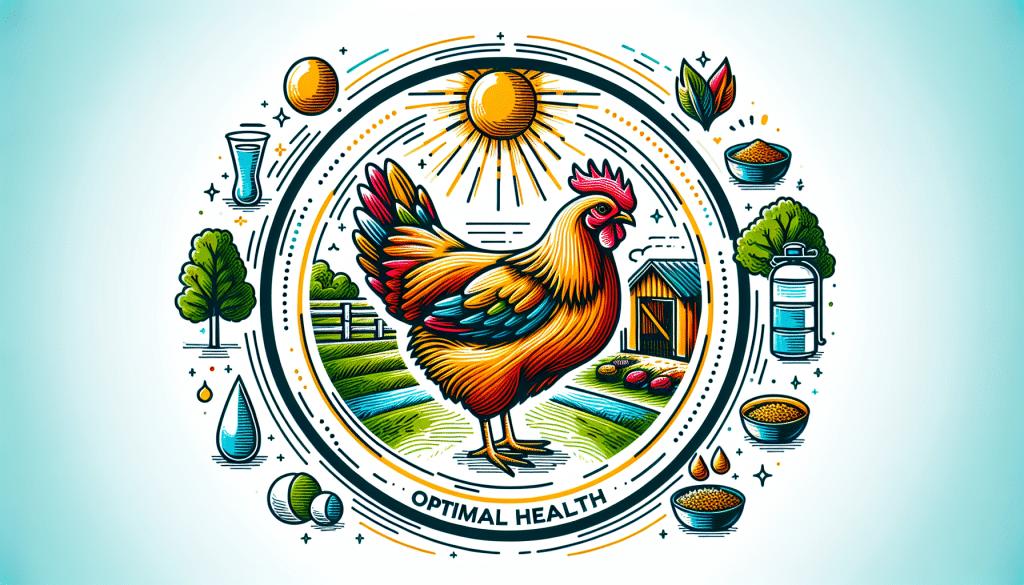
Recognizing Signs of Illness
Behavioral and Physical Indicators
Being familiar with your chickens’ normal behavior and appearance is key to spotting signs of illness. Any significant changes such as loss of appetite, lethargy, abnormal droppings, respiratory distress, or changes in feather condition should be taken seriously. Observing their behavior and physical indicators can help you identify potential health issues in a timely manner.
Early Detection and Isolation Strategies
Early detection of illness is crucial for preventing the spread of diseases within your flock. Isolating any sick or injured chickens can help minimize the risk of contagion and provide an opportunity for focused treatment and care. Creating a separate space with appropriate bedding, food, and water for isolating sick chickens is important in maintaining the overall health of your flock.
Common Illnesses and Their Symptoms
Chickens are susceptible to various common illnesses, such as respiratory infections, digestive disorders, and egg-related problems. Respiratory infections can manifest as coughing, sneezing, nasal discharge, and difficulty breathing. Digestive disorders may include diarrhea, vomiting, or crop issues. Egg-related problems can range from soft-shelled or shell-less eggs to reproductive disorders. Being aware of these illnesses and their symptoms can aid in prompt identification and treatment.
Common Infectious Diseases
Viral Infections: Marek’s Disease and Others
One of the most common viral infections in chickens is Marek’s disease, which can cause paralysis and tumors. Other viral infections that can affect chickens include Newcastle disease, infectious bronchitis, and avian influenza. Vaccination and biosecurity measures are crucial in preventing the spread of these diseases among your flock.
Bacterial Infections: Salmonellosis, Colibacillosis
Bacterial infections in chickens can lead to serious health issues. Salmonellosis, caused by the Salmonella bacteria, can result in diarrhea, lethargy, and even death. Colibacillosis, caused by the Escherichia coli bacteria, can cause septicemia, respiratory distress, and reproductive problems. Proper hygiene, sanitation, and vaccinations play a vital role in preventing the occurrence and spread of these bacterial infections.
Fungal Infections: Aspergillosis
Aspergillosis is a common fungal infection in chickens caused by the Aspergillus fungus. It primarily affects the respiratory system and can cause respiratory distress, coughing, and wheezing. Proper ventilation, cleanliness, and good hygiene practices can help minimize the risk of fungal infections in your flock.
Parasitic Infestations
Mites and Lice
Mites and lice are common parasites that infest chickens. External parasites such as Northern fowl mites, red mites, and lice can cause irritation, feather loss, anemia, and even death if left untreated. Regular inspections, prompt treatment with appropriate anti-parasitic products, and maintaining a clean coop can help prevent and control infestations.
Internal Worms
Internal worms, such as roundworms, tapeworms, and cecal worms, can cause significant harm to chickens. These worms can impact the digestive system, leading to weight loss, poor appetite, and reduced egg production. Regular deworming and proper sanitation practices are essential for preventing and controlling internal worm infestations.
Impact on Health and Egg Production
Parasitic infestations in chickens can have a detrimental impact on their health and egg production. The irritation caused by external parasites can lead to stress, reduced feed intake, feather pecking, and decreased egg production. Internal worm infestations can interfere with nutrient absorption, leading to malnutrition and poor reproductive performance. Proper parasite prevention and control measures are crucial to maintaining the overall health and productivity of your flock.
Non-Infectious Health Issues
Nutritional Deficiencies
Nutritional deficiencies can arise from imbalanced diets or inadequate access to essential nutrients. Common deficiencies in chickens can manifest as poor feather quality, weak bones, slow growth, and decreased egg production. Providing a well-balanced diet and ensuring access to necessary supplements can help prevent nutritional deficiencies and promote optimal health.
Stress and Environmental Factors
Stress and environmental factors can also impact the health of chickens. Overcrowding, extreme temperatures, poor ventilation, or sudden changes in the environment can all contribute to stress. Chronic stress weakens the immune system and makes chickens more susceptible to diseases. Maintaining a stress-free environment, providing adequate space, and maintaining proper temperature and ventilation control are crucial in promoting the well-being of your flock.
Genetic and Congenital Problems
Genetic and congenital problems can affect chickens, leading to various health issues. These may include abnormalities in bone structure, feather development, or reproductive organs. Breeding from healthy stock and implementing proper selection practices can help reduce the occurrence of genetic and congenital problems in your flock.
Treatment Approaches for Sick Chickens
Common Medications and Antibiotics
In the case of sick chickens, the use of appropriate medications and antibiotics can help treat various health issues. However, it’s important to consult with a veterinarian before administering any medications to ensure proper dosage and effectiveness. Antibiotics should only be used when necessary and in accordance with veterinary guidance to avoid antibiotic resistance and potential harm to the chickens.
Alternative Medicine and Natural Remedies
Some chicken owners may opt for alternative medicine and natural remedies to treat certain health issues. These can include herbal remedies, probiotics, and homeopathy. While these approaches may have anecdotal support, it’s important to consult with a qualified professional and consider the scientific evidence before using alternative treatments.
Supportive Care Practices
Supportive care practices play a crucial role in the recovery of sick chickens. This may include providing rest, isolation, and a calm environment for healing. Additionally, ensuring proper nutrition, hydration, and access to fresh water can aid in their recovery process. Gentle handling and monitoring of their condition are also essential in providing the necessary care for sick chickens.
Monitoring and Improving Flock Performance
Record-Keeping for Health and Productivity
Maintaining accurate and detailed records of your flock’s health and productivity is essential for effective management. Keep track of vaccinations, treatments, changes in behavior, egg production, and any other relevant information. This allows you to identify patterns and make more informed decisions regarding their health, nutrition, and overall well-being.
Strategies for Enhancing Flock Vitality
To enhance the vitality of your flock, consider implementing strategies such as providing a well-balanced diet, ensuring proper hygiene and sanitation, promoting exercise and free-ranging, and minimizing stress factors. Regularly monitoring their condition and making adjustments as needed can contribute to the overall vitality and longevity of your flock.
Benchmarking and Setting Health Goals
Benchmarking involves comparing your flock’s performance to industry standards or other similar flocks. This can help identify areas for improvement and set realistic health goals. By setting measurable targets, you can track your flock’s progress and make adjustments to their health management practices accordingly.
In conclusion, understanding chicken physiology is key to maintaining the health and well-being of your flock. By focusing on their anatomy, providing a healthy living environment, managing their nutrition and diet, taking preventive health measures, recognizing signs of illness, and implementing appropriate treatment approaches, you can help ensure the optimal health and productivity of your chickens. Regular monitoring and continuous improvement strategies will contribute to their overall vitality, making for a happy and thriving flock.

